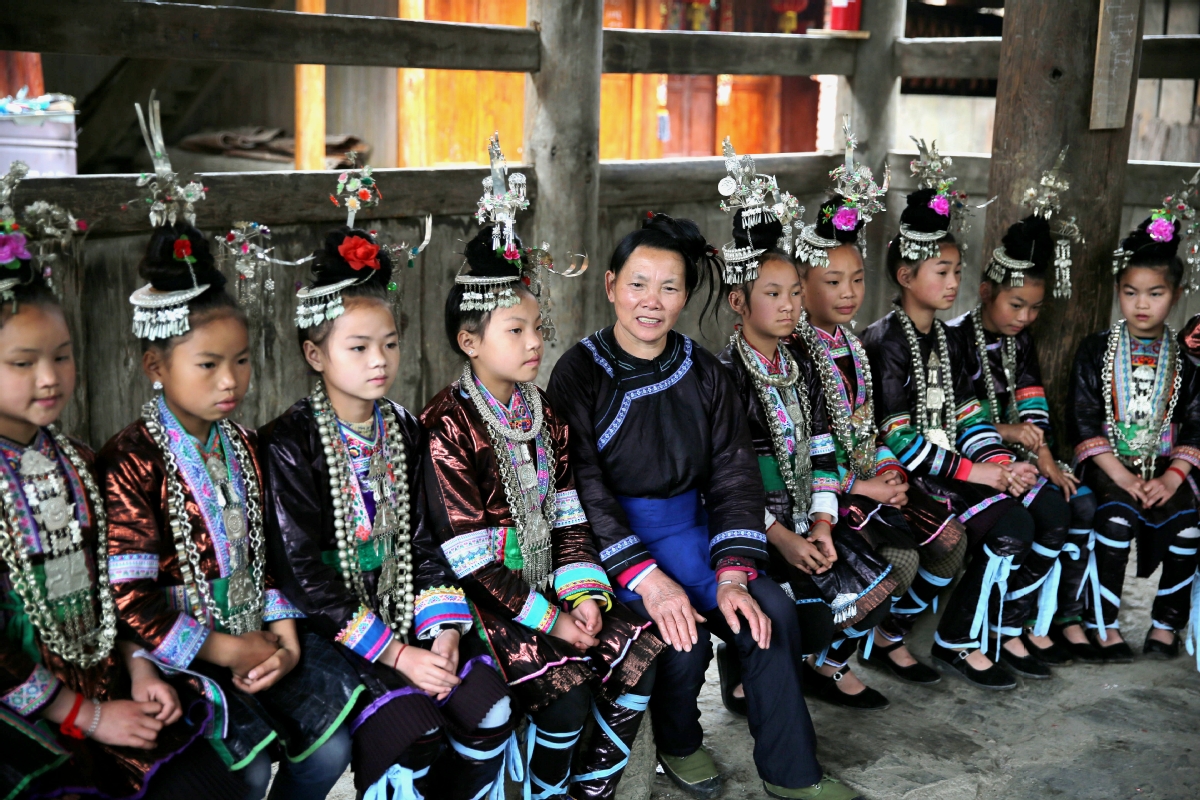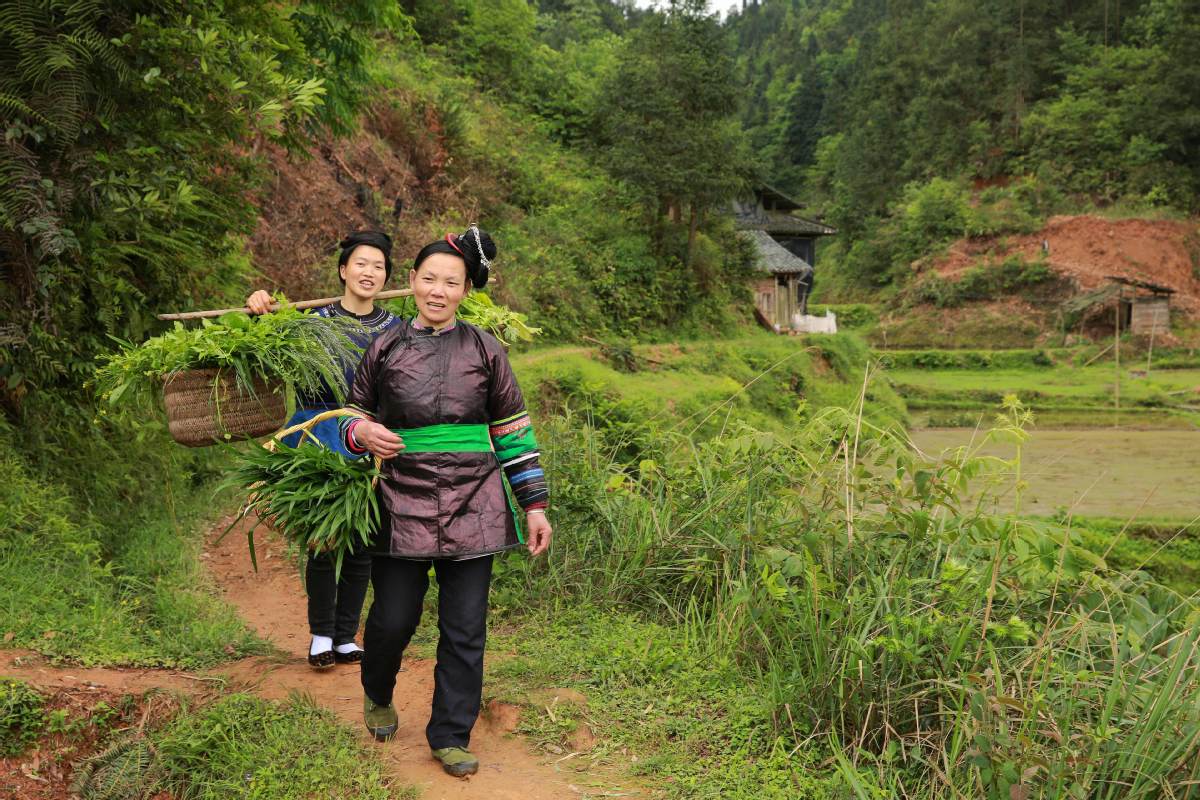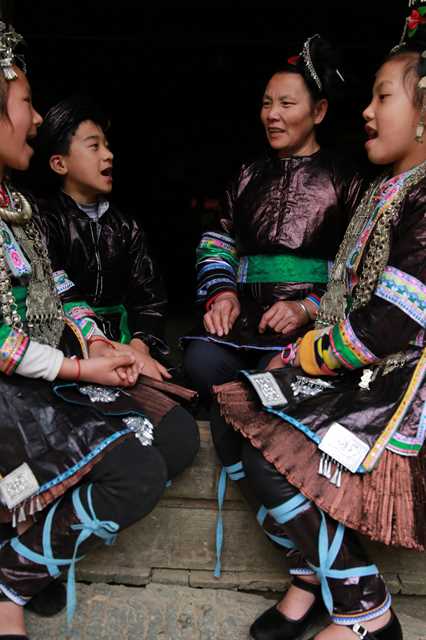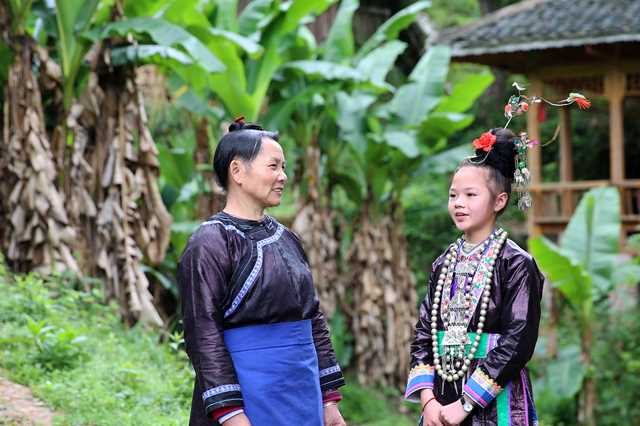
Hu Guanmei, the representative inheritor of the Grand Song of Dong, teaches children to perform Dong songs in a drum tower in Rongjiang county, Qiandongnan Miao and Dong autonomous prefecture in Guizhou province. [Photo by Yang Chengli/For chinadaily.com.cn]
Surrounded by mountains, Zaidang village in Rongjiang county of Qiandongnan Miao and Dong autonomous prefecture in Guizhou province has been inhabited by Dong ethnic people for generations. Nourished by nature, the people there are characterized by a simple and easygoing temperament.

Hu Guanmei teaches girls of Zaidang village in Rongjiang county, Guizhou province in a drum-tower. [Photo by Yang Chengli/For chinadaily.com.cn]
Their tradition of passing on culture and knowledge through music is exemplified in the Grand Song of the Dong ethnic group, a folk chorus performance that was added to the UNESCO World Heritage List in 2009.

Hu Guanmei and her daughter-in-law sing songs while doing farmwork. [Photo by Yang Chengli/For chinadaily.com.cn]
This harmonious folk music could make a name for itself without a master singer. But it's easier with one. Hu Guanmei, one of the representative inheritors of the Grand Song of the Dong at the national level, works hard to help people master the music.

Hu Guanmei instructs children in songs of Dong ethnic group. [Photo by Yang Chengli/For chinadaily.com.cn]
Hu, 65, has been singing Dong songs since she was a child. She is proficient in many singing skills and is famous in her village. Since Dong songs can only be passed down through the mouths of singers, the most important thing Hu has been concerned about for decades is the inheritance of the Grand Song of the Dong.

Hu Guanmei guides children as they practice Dong songs. [Photo by Yang Chengli/For chinadaily.com.cn]
Under Hu's guidance, her two daughters, Yang Xiuzhu and Yang Xiumei, became excellent singers, winning many music competitions, including the silver prize for original ecological singing at the 12th National Youth Singer TV Competition in 2006. They even performed in France and Spain.
In addition to teaching her own children, she has been teaching kids in her village and neighboring ones.

Hu Guanmei teaches her grandchildren Dong songs at home. [Yang Chengli/For chinadaily.com.cn]
In recent years, Hu was invited to teach kids to sing Dong songs at schools in the town every week, so she often leaves time for her own children on weekends.

Hu Guanmei listens to boys and girls as they practice Dong songs at home. [Photo by Yang Chengli/For chinadaily.com.cn]
During winter and summer vacations, she participates in cultural activities and helps guide the chorus of Dong songs. Many of the villagers are her students.
"I have been teaching songs for decades, there are too many people and too many awards to count," Hu said.

Hu Guanmei teaches a girl how to sing Dong songs outdoors. [Photo by Yang Chengli/For chinadaily.com.cn]
Singing Dong songs gives members of the ethnic group a positive attitude toward life. "Rice nourishes the body and songs nourish the soul," said Hu. "The Grand Song of Dong is complements people singing to life. The reason I teach songs is to pass on our folk music and to help people escape from pain and troubles and instead have the enjoyment of beauty."

